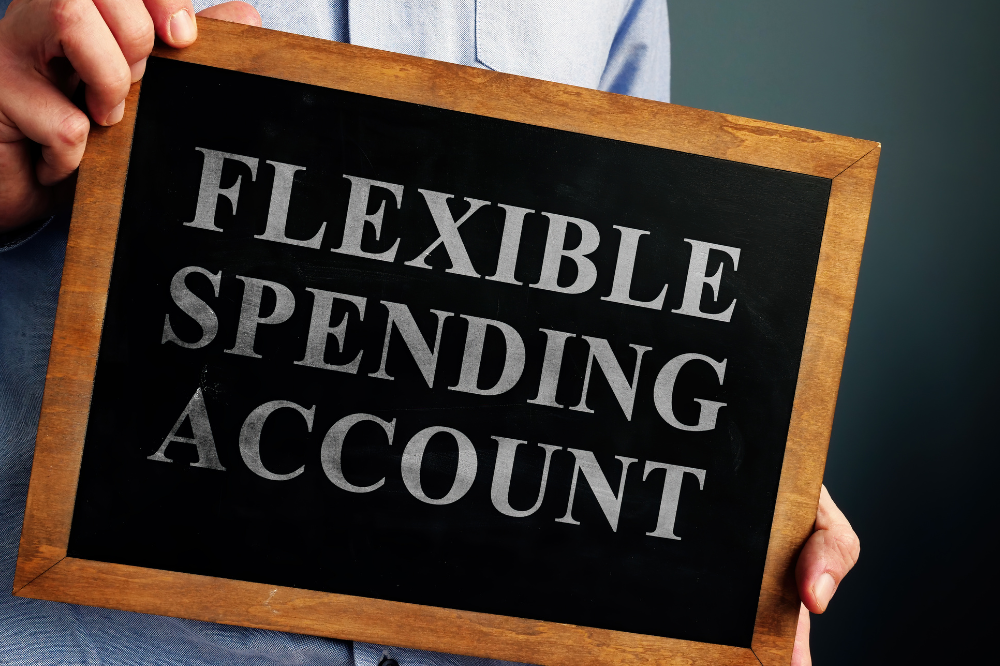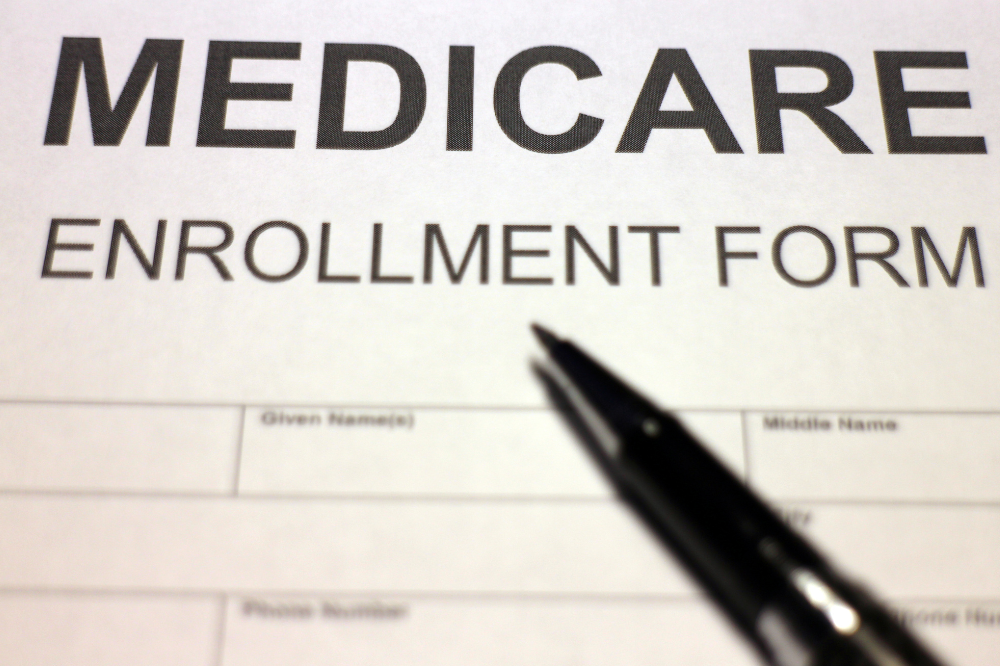What is a Medicare flex card?
A Medicare flex card is a type of debit card that can be used to pay for eligible medical expenses. The card is linked to your Medicare account and can be used at any provider that accepts Medicare payments. Flex cards can be used to pay for copayments, coinsurance, and deductibles. They can also be used to buy prescription drugs and other medical supplies. Flex cards are a convenient way to pay for your Medicare expenses, and they can help you save money on your out-of-pocket costs. If you’re enrolled in Medicare, you may be eligible for a Medicare card.
What is a flexible spending account?

A flexible spending account (FSA) is a type of savings account that allows you to set aside money for medical expenses and other eligible costs. The money in your FSA can be used to pay for a wide variety of items and services, including doctor’s visits, prescription drugs, and more. FSAs are offered by employers as a way to help employees cover the cost of out-of-pocket expenses.
Types of flexible spending account
There are two types of FSAs:
1. Health care FSAs
2. Dependent care
FSAs Health care FSAs can be used to pay for medical, dental, and vision expenses. Dependent care FSAs can be used to pay for child care or adult daycare expenses. You can use your FSA funds to pay for expenses incurred by your spouse, children, or any other eligible dependents. There are a few things to keep in mind when using an FSA.
First, you will need to have a plan in place to cover any unexpected costs that may come up. Second, you should keep track of all of your expenses so that you do not overspend and deplete your account too quickly. Finally, FSA funds are typically use-it-or-lose-it, meaning that any money left in the account at the end of the year will be forfeited. An FSA can be a great way to save money on out-of-pocket expenses, but it is important to understand how they work before signing up for one. If you have any questions about FSAs, be sure to ask your human resources representative or benefits administrator.
Do the Federal Medicare program offers flex card for seniors?
No, the Federal government Medicare program does not offer any Medicare cards. Senior people who are enrolled in the Federal Medicare program have the option to sign up for private health advantage plans. These plans are offered by private insurance companies as an alternative to the traditional Medicare program.
Advantage plans typically offer more comprehensive coverage than original Medicare, including prescription drug coverage, dental and vision coverage, and sometimes even routine wellness visits. In addition, many plans have no annual deductible, which can save old people a significant amount of money on their healthcare costs. While private Medicare plans may cost more than traditional Medicare, they can be well worth the investment for senior people who want peace of mind when it comes to their health insurance.
What is a Medicare Advantage plan?
A Medicare Advantage plan (MA plan)is a health insurance plan offered by a private company that contracts with Medicare to provide Part A and Part B benefits to people with Medicare. These plans are sometimes called “Part C” or “MA Plans.” MA plans may offer extra benefits that Original Medicare (Part A and Part B) does not cover.
MA plans are required to provide at least the same level of coverage as Original Medicare, but many plans provide more. For example, some Medicare plans cover routine vision or dental care. Some plans offer prescription drug coverage (Part D).
You must have Medicare A and B Part to join a Medicare Advantage plan.
Specific medicare advantage plans for seniors

There are many different types of Medicare plans available that provide additional benefits to senior citizens. Some plans offer coverage for things like prescription drugs, while others may provide more comprehensive coverage that includes a vision and dental care. There are also plans specifically designed for those with chronic health conditions, like diabetes or heart disease. No matter what your specific needs are, there is a Medicare Advantage plan out there that can help you get the coverage you need.
One popular type of Medicare Advantage plan is the Health Maintenance Organization (HMO). These plans typically offer lower premiums and copayments than other types of MA plans. However, HMOs may have more restrictions on which doctors you can see and which services you can receive.
Another popular type of Medicare Advantage plan is the Preferred Provider Organization (PPO). PPOs typically have higher premiums than HMOs, but they offer more flexibility in terms of which doctors you can see and which services you can receive.
You should also be aware that some specific plans come with an annual deductible. This means that you will need to pay a certain amount out-of-pocket before your coverage starts.
It’s important to compare different Medicare plans before the open enrollment period. This way, you can be sure that you’re getting the best possible coverage at the most affordable price.
How does the Medicare flex card work?
The Medicare flex cards are debit cards that allow people to pay for Medicare expenses with pre-tax money. This can save you money on your taxes and help you manage your budget better. You can use the card to pay for things like doctor visits, hospital stays, prescription drugs, and other health expenses. You can also use the card to get cash back, which can be used to pay for things like groceries or gas. The card is valid for two years and can be used at any time during that period. There are no fees associated with the card, and you can use it as often as you like.
Flex cards are a great way for senior people with Medicare to save money on their medications. The flex card advertising makes statements that cause beneficiaries to assume they’ll get up to $2,880 in assets transferred onto one single payment account but this isn’t always true- while some carriers offer the advantage of getting such an enormous sum it’s uncommon nowadays because most have around 500 pre-loaded balance on average which allows users access all covered expenses without having another monthly fee added into what was already expensive enough as it stands!
How to enroll for a Medicare flex card?

If you are a Medicare beneficiary, you may be eligible for a Medicare card. This card allows you to use your Medicare benefits to pay for certain medical expenses, such as copayments, coinsurance, and deductibles. To enroll for a flex card, you will need to contact your local social security office or visit the social security website. Once you have completed the application process, you will be issued a card that can be used by Medicare advantage providers.
Guide to getting Medicare flex cards
1. Gather your documentation. You will need to provide your Social Security number, proof of residency, and proof of citizenship or legal status.
2. Apply online or in person at your local Social Security office.
3. Once you have submitted your application, you will receive a decision within two weeks.
4. If you are approved for a health card, you will receive your card in the mail within four weeks.
5. Once you have received your Medicare card, you can use it to receive discounts on medical and prescription expenses.
Eligibility criteria to qualify for Medicare Advantage plans for seniors
To qualify for a flex card, you must be 65 years of age or older and have an annual income of $26,000 or less. Additionally, they must be a US citizen or permanent resident and have a social security number. If you meet these criteria, you can apply for a flex card by visiting the website of the US Department of Health and Human Services.
How to use your Medicare flex card for the best results?
If you have a flex card, you can use it to save money on your out-of-pocket healthcare costs. Here are some tips on how to get the most out of your Medicare flex cards:
1. Use your flex cards for preventive Medicaid services
Preventive care services can help you avoid more costly medical problems down the road. Many preventive care services, like screenings and vaccinations, are covered by Medicare Part B. You can use your flex card to pay for these services without having to meet your deductible.
2. Use your flex cards for primary care visits
Primary care visits are an important part of staying healthy. When you use your Medicare cards for primary care visits, you’ll only have to pay your copayment. You won’t have to meet your deductible first.
3. Use your flex cards for prescription drugs.
If you’re enrolled in Medicare Part D, you can use your flex card to pay for your prescription drugs. You’ll pay your copayment for each prescription, and you may also get a discount on your total drug costs.
4. Use your flex cards for other out-of-pocket costs.
Your flex card can also be used to pay for other out-of-pocket healthcare costs, like dental care, vision care, and more.
5. Use your Medicare cards wisely.
Remember that your Medicare flex card has limits. You can only use it for healthcare costs that are not covered by Medicare. Be sure to check with your plan before using your card to make sure the service or item is not covered by Medicare.
By following these tips, you can make the most of your Medicaid card and your healthcare costs.
Benefits of using Medicare flex cards
1. A Medicare flex card can help senior people stay healthy and active
2. It can help seniors manage their medications and treatments
3. It can help to stay independent and self-sufficient
4. It can help to save healthcare costs
5. Flex cards can help senior citizens to get the care they need when and where they need it
6. Flex cards can help seniors coordinate their care with other providers
7. It can help seniors stay connected to their doctors and other healthcare providers
8. Flex card for seniors helps them to manage their health information
9. It can help senior people to access care and services in their community
10. A Medicare card can help seniors with Medicaid coverage
Which private insurance companies offer Medicare Advantage plans?
Below is the list of 10 best private insurance companies by the United States government providing Medicare Advantage plans to senior citizens:
1. UnitedHealthcare
2. Humana
3. Aetna
4. Cigna
5. Anthem insurance company
6. Centene Corporation
7. Molina Healthcare insurance company
8. WellCare Health Plans, Inc.
9. HCSC (Blue Cross Blue Shield)
10. SCAN Health Plan
How to find a Medicare Advantage plan that meets your needs?
There are a few things to consider when you’re looking for a Medicare Advantage plan. First, you’ll want to make sure that the plan covers the services that you need. You’ll also want to look at the costs of the plan, including the monthly premium, deductible, and co-pays. Finally, you’ll want to make sure that the plan is offered in your area.
You can start by looking at the medicare options at your local Medicare office. You can also look online for Medicare Advantage plans.
Once you’ve found a few medicare options that you’re interested in, you’ll want to contact the plan providers to get more information. You’ll want to ask about the coverage, costs, and other important details.
Once you’ve found a medicare plan that meets your needs, you can enroll in it. You can do this by contacting the plan provider or by going online.
If you have any questions about Medicare Advantage plans, you can contact the Medicare office or the plan provider.
How much do flex cards cost?
Medicare cards are valid for 10 years and usually cost $33. You may be able to get a discount if you are a senior citizen, have a disability, or meet other criteria. The card allows you to access a government-run program.
If you need to see a GP, you can visit a Medicare-linked GP and pay no more than $7. If you need to see a specialist, you will need to pay a copayment. The exact amount will depend on the specialist and the number of times you visit them in a year. You can also get discounts on some medical tests, x-rays, and scans. If you have a private health insurance policy, you may still be able to use your Medicare card to get benefits such as gap cover.
How to protect yourself from medicare scams?

One of the best ways to protect yourself from Medicare scams is to be aware of the types of scams that are out there. If you know what to look for, you can avoid becoming a victim. Here are some of the most common Medicare scams:
1. Fraudulent billing:
This is when someone bills Medicare for services that were not rendered, or for services that were not covered by Medicare. This can be done by billing for a higher level of service than was provided, or by billing for services that were not medically necessary.
2. Fake products and services:
Several fake products and services are marketed to Medicare beneficiaries. These include things like bogus health care products, fake home health care services, and phony insurance policies.
3. Identity theft:
This is when someone uses your Medicare number to get medical care or prescription drugs or to bill Medicare for services that were not rendered.
4. Fraudulent telemarketing:
This is when someone calls you and tries to sell you something that is not covered by Medicare or tries to get you to sign up for a service that you do not need.
5. Fraudulent home health care:
This is when someone provides home health care services that are not medically necessary, or bills Medicare for services that were not rendered.
If you think you may be the victim of a Medicare scam, there are a few things you can do. First, you should contact the Federal Trade Commission and file a complaint. You can also contact the Office of Inspector General for the Department of Health and Human Services to report fraud. You can also contact your state attorney general’s office to file a complaint. By being aware of the types of scams that are out there, you can protect yourself from becoming a victim. If you think you may have been the victim of a scam, be sure to report it so that others can be protected.
FAQs
Below are some commonly asked questions about flex cards for seniors:
1. What should I do if I lose my flex card?
If you lose your Flex Card, contact your Medicare provider or the Social Security Administration as soon as possible. They will be able to help you replace your card and get you back on track with your health care coverage.
2. Can I use my Flex Card to pay for prescription drugs?
Yes, you can use your Medicare Flex Card to help pay for the cost of your prescription drugs. However, you’ll still be responsible for any deductibles, coinsurance, or copayments associated with your prescriptions.
3. Can I use my flex card to pay for long-term care?
Yes, you can use your Medicare Flex Card to help pay for the cost of long-term care, like in-home care or nursing home care. However, you’ll still be responsible for any deductibles, coinsurance, or copayments associated with your long-term care.
4. Can I use my Medicare flex card to pay for dental care?
Yes, you can use your flex card to help pay for the cost of dental care. However, you’ll still be responsible for any deductibles, coinsurance, or copayments associated with your dental care.
5. Can I use my Medicare flex card to pay for vision care?
Yes, you can use your card to help pay for the cost of vision care. However, you’ll still be responsible for any deductibles, coinsurance, or copayments associated with your vision care.
6. How long can I use my Flex Card?
Your Medicare card is valid for as long as you’re enrolled in Medicare. Once you disenroll from Medicare, your card will no longer be active.
Final Talk
A Medicare flex card, also known as a flexible spending account (FSA), is a benefit offered by the Federal Medicare program that allows seniors to pay for qualified health expenses with pre-tax dollars. FSAs are designed to help people save cash on health care costs, and there are several different types of Medicare Advantage plans available to seniors. To qualify for a Medicare Advantage plan, individuals must meet certain eligibility criteria. For more information about how the Medicare flex card works and how to enroll, keep reading our blog posts.











